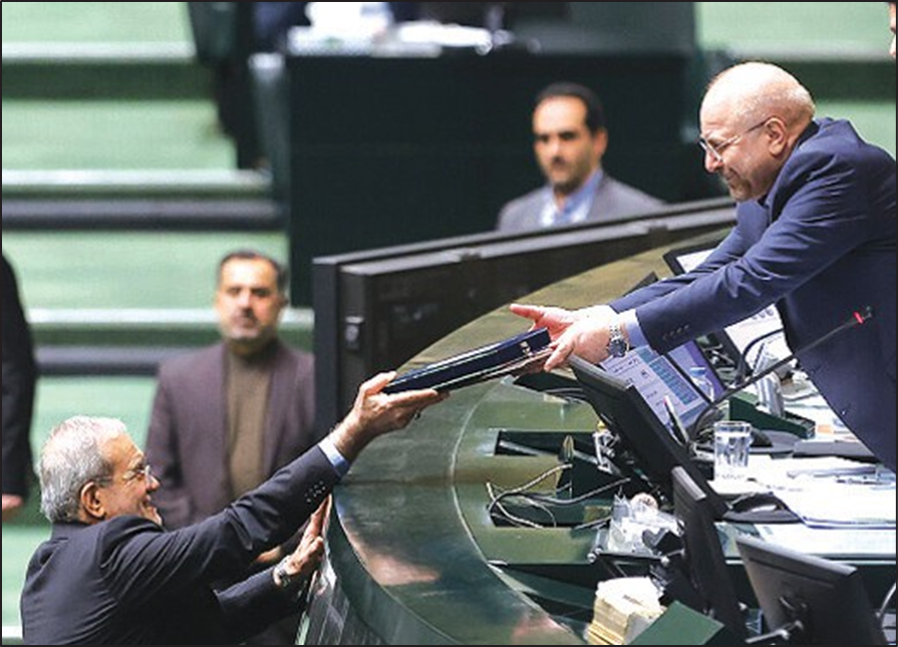December 31, 2021
by Warren L. Nelson
Previous US administrations have repeatedly warned that “all options are on the table” with regard to Iran while avoiding saying military force was an option—but the Biden Administration and now changed that rhetoric and said openly that it is fully prepared to use “military force.”

Bret McGurk, the White House’s top Middle East official, warned November 21 that if Iran tests the US, Washington would respond “decisively,” including with “military force.”
This was a major break with the phrasing used by previous administrations, both Republican and Democratic. But few news outlets detected that.
“The United States is not going anywhere. This region is too important, too volatile, too interwoven with American interests to contemplate otherwise,” McGurk, White House Coordinator for the Middle East and North Africa, said during the Manama Dialogue organized in Bahrain by the UK-based International Institute for Strategic Studies (IISS).
“So, if tested, we will protect our people, including through the use of military force when necessary. And if we need to use force, we are prepared to do so, decisively. We are not going to be drawn into tit-for-tat exchanges of fire with Iranian-backed proxy groups, and they know it,” he said.
America’s commitment to Iraq has been questioned since the US withdrew from Afghanistan in August and the Taliban took over. In Iraq, US forces invited to the country as part of the coalition to defeat the Islamic State group (ISIS) are shifting their mission to advising and assisting, formally ending their combat mission by the end of the year. There are about 2,500 American troops in Iraq, and that number is not expected to go down.
Iranian-backed militias in Iraq have demanded a full withdrawal and are accused of at least 36 rocket and drone attacks on US interests in Iraq and Syria this year, according to data compiled by Rudaw English, a Kurdish news outlet.
“Our approach to Iran, a declared adversary, is grounded in essential and tested principles of deterrence, diplomacy and de-escalation—neither of which can work without the other,” McGurk said. “From the outset, in the Biden Administration, we assume, based on experience and analysis, that the regime in Iran is an adversary and it will remain so for the foreseeable future. We fully support and welcome diplomacy to address discreet issues, reduce risks of miscalculation and find potential avenues for de-escalation wherever they exist.”
Israeli journalist Barak Ravid questioned McGurk about why Washington was not “decisive” in responding to Iran after the October 20 drone attack on the Tanf US military base in southern Syria.
McGurk responded: “These subjects you don’t always talk about in the open, and not every response is going to be on CNN when something is blowing up, so [saying] ‘we did not do anything’ is not accurate.”
It was the strongest language used by any US administration since the 1979 revolution—with the exception of some comments by Donald Trump, which he often ignored himself.
McGurk works in the White House on the National Security Council staff, so his remarks were almost certainly approved by the president. McGurk was not speaking off the cuff, but reading from a prepared text that had been approved at the White House.
Rob Malley, the State Department coordinator for Iran policy, took an entirely different tack at the Manama conference. He emphasized the importance of trying to work with the Islamic Republic and did not emphasize any use of force. He argued that “most of the region’s dysfunctions have their root in Iran’s exclusion” from policy-making, and that wreaking havoc in the Middle East was simply Iran’s “answer” to being left out of regional affairs.
He proposed rehabilitating the Islamic Republic through extensive diplomatic outreach and generous economic concessions geared to nudging the Tehran regime back to the nuclear negotiating table.
US Secretary of Defense Lloyd Austin also spoke at the conference. He told attendees not to get fixated on the numbers of US troops physically in the region. He said those numbers would rise and fall, “but we have very real combat power in this theater and we can and will maintain it. And, if needed, we will move in more and we will move it in rapidly.”
Austin was clearly trying to counter what many Israeli and Arab participants in the conference were saying in the hallways and in private conversations—that they believed the US was leaving the region to focus on China and was no longer projecting sufficient power to deter Iran.



















